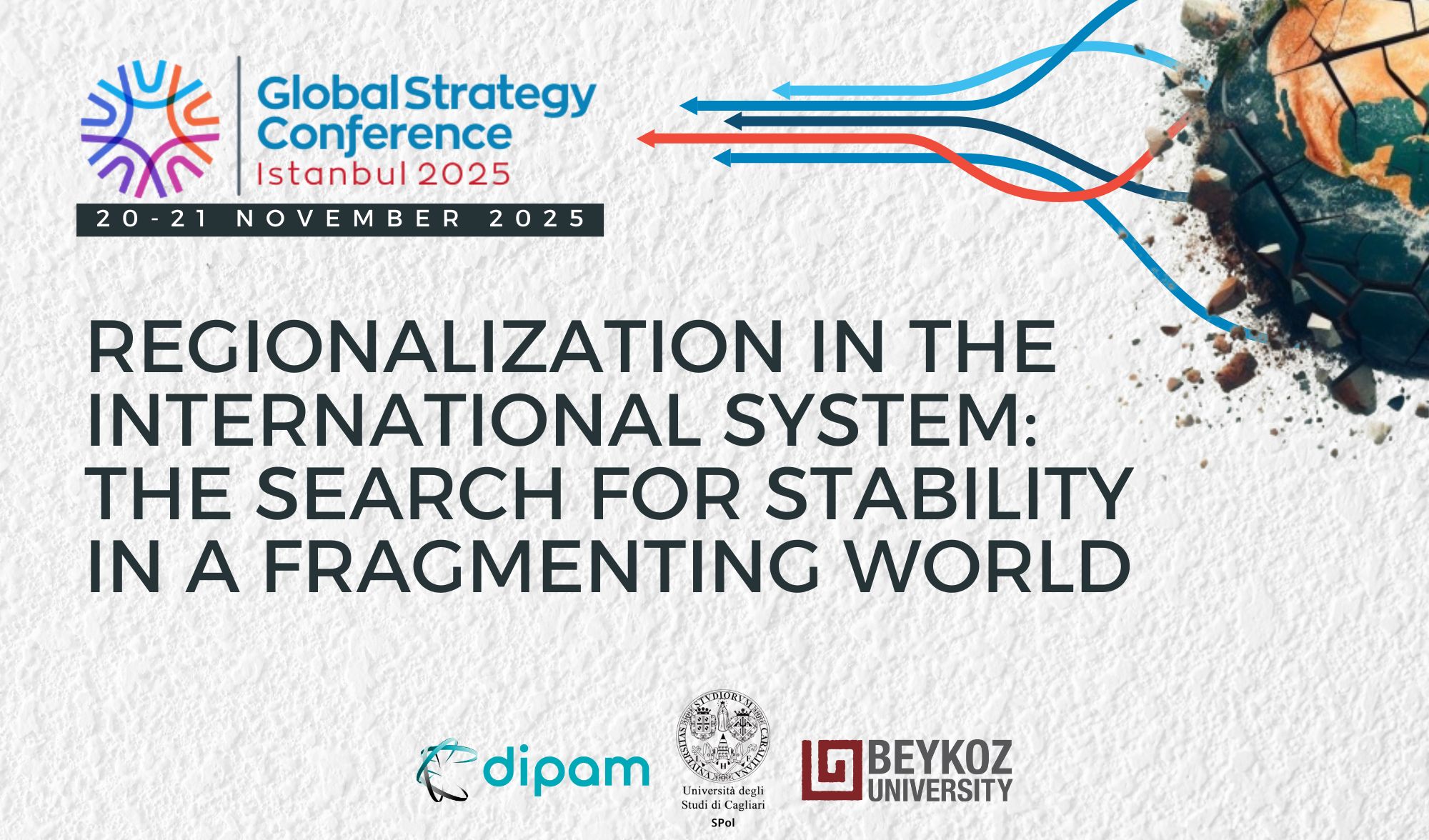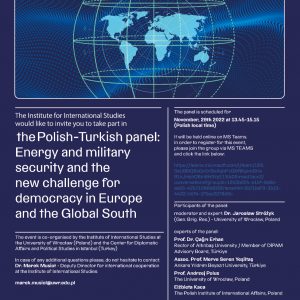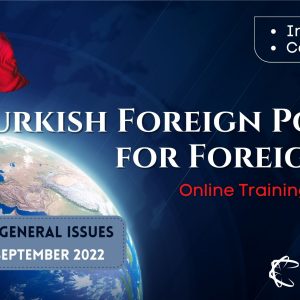
Global Strategy Conference 2025
“Regionalization in the International System: The Search for Stability in a Fragmenting World”
20-21 November 2025 | Istanbul, Türkiye (Hybrid)
CONTEXT
The international system’s turbulent period, characterized by inequitable resource distribution, migrant crises and power struggles in the Eastern Mediterranean and Asia-Pacific, was brought to a head with the outbreak of the Russia-Ukraine War. These uncertainties and changes in the international system have accelerated, especially with the emergence of this war undermining the notion that state-state wars are over and the second Trump era in the US. The Trump administration’s renewed and stronger emphasis on unilateral global policies has severely shaken the foundations of the existing international order and alliance relations. The questioning and distancing attitude of the US towards international institutions and agreements under the new administration has further eroded the mindset on which the existing system was built, the capacity of the UN system to ensure international peace and security, and the belief in it. In this sense, the search for a system in the post-Cold War era reached a crisis point and entered a new period of uncertainty. In such a situation, regional initiatives and cooperation have become more important than ever.
Although the post-Cold War US-centered unipolarity discourse was short-lived, the US influence and power projection in the global system continued. Today, however, the international system is clearly evolving away from this structure and towards a new multipolar structure with multiple centers of power, increased competition and struggle between different models of order. In this new order, actors such as the United States, China and the European Union, as well as other emerging regional powers, have established their own spheres of influence and have a say in global affairs, which seems to make the system more unpredictable, but mediation can also offer alternative solutions to existing crises thanks to its capacity to maintain negotiations against all odds and to create a different balance of power for each region, as it includes different interpretations and actions of international politics. On the other hand, the growing rivalry and difference in understanding between the different poles makes it difficult to find common ground and common approaches to global crises and threats. In this uncertain “transition period”, actors, especially in conflict-prone regions, are experiencing a heightened state of vigilance in the face of shifts in the balance of power and the repercussions of great power competition.
The rising trend of authoritarianism and populist regimes around the world has revealed that societies are also showing a protectionist reflex to existing global policies, which has become another threat to the international liberal order. The US tendency to redefine its global leadership role in a more inward-looking and commercially oriented perspective has accelerated the efforts of other power centers and regional actors to protect their own security and interests. With the second Trump administration coming to power in the United States, Europe has taken steps to show that it has decided to take the solution of its problems and responsibilities back into its own hands. In this sense, it was realized that the relations of the “western bloc” with the transatlantic were about to evolve into a different dimension. In a world moving towards regionalization, this has led to the rise of an “America first” mentality in the US, Europe’s initiatives such as the “European Peace Facility” and increased armament, China’s unique policies in the Asia-Pacific and Russia’s in Ukraine and Central Asia. In such an environment, the weakness, if not non-existence, of the initiatives taken by the actors in the Middle East and the lands of Islamic Civilization to ensure first security and then peace and stability has become conspicuous.
In this context, it is important that discussions in an open-minded academic environment provide outputs for the perception, evaluation and guidance of these processes at different levels. This year, the Global Strategy Conference will be held on November 20-21, 2025 in cooperation with the Center for Diplomatic Affairs and Political Studies (DİPAM), Beykoz University (Türkiye) and Department of Political and Social Sciences (SPOL) of University of Cagliari (Italy). The conference, whose theme this year is “Regionalization in the International System: The Search for Stability in a Fragmenting World”, aims to prepare a multilateral environment where current problems and possible solutions will be discussed by addressing this transition period of the international system with the participation of experts from different fields. Thus, it will lead to the evaluation of the contributions that can be provided by regional initiatives to the current conflicts and crises, which are actually reflections of the problems of the international system.
Main Theme:
“Regionalization in the International System: The Search for Stability in a Fragmenting World”
Topics
- Evolution of the International System and Regionalization: Theoretical Approaches and Future Scenarios
- Multipolarity and Global Power Distribution: In Search of a New Balance?
- The Transformation of Sovereignty: The Role of the Nation-State in the Face of Regionalization
- Regional Security Architectures: NATO, ASEAN, SCO and Other Models
- Military Strategies and Regional Power Rivalries: From Cold Peace to Hot Contacts
- Armament Trends and Strategic Autonomy: Examples from Europe, Asia and the Middle East
- Weakening International Institutions: UN, EU and the Future of Multilateralism
- International Law, Borders and the Right to Intervene: Sovereignty or Humanitarian Intervention?
- Regional Economic Blocs and Protectionism: New Trade Maps
- Energy Geopolitics and Regional Tensions over Critical Resources
- Digital Sovereignty and Technological Competition: Regional Blocs in the Global Network
- Europe’s Search for Strategic Autonomy: The Future of the EU and NATO Relations
- Rising Competition in Asia-Pacific: China, India and US Strategies
- The African Continent: Foreign Interventions, Regional Integration and Security Transformation
- The New Wave of Regionalization in Latin America: Populism, Security and Economy
- Fragility and New Cooperation Opportunities in the Middle East: Gulf, Levant and North Africa
- Migration, Identity and Borders: Human Security in Regional Crises
- Community-Based Diplomacy and Regional Security: Diasporas, NGOs and Local Actors
Presentations on relevant themes are also welcome.
CALL FOR PAPER




Comments are closed.